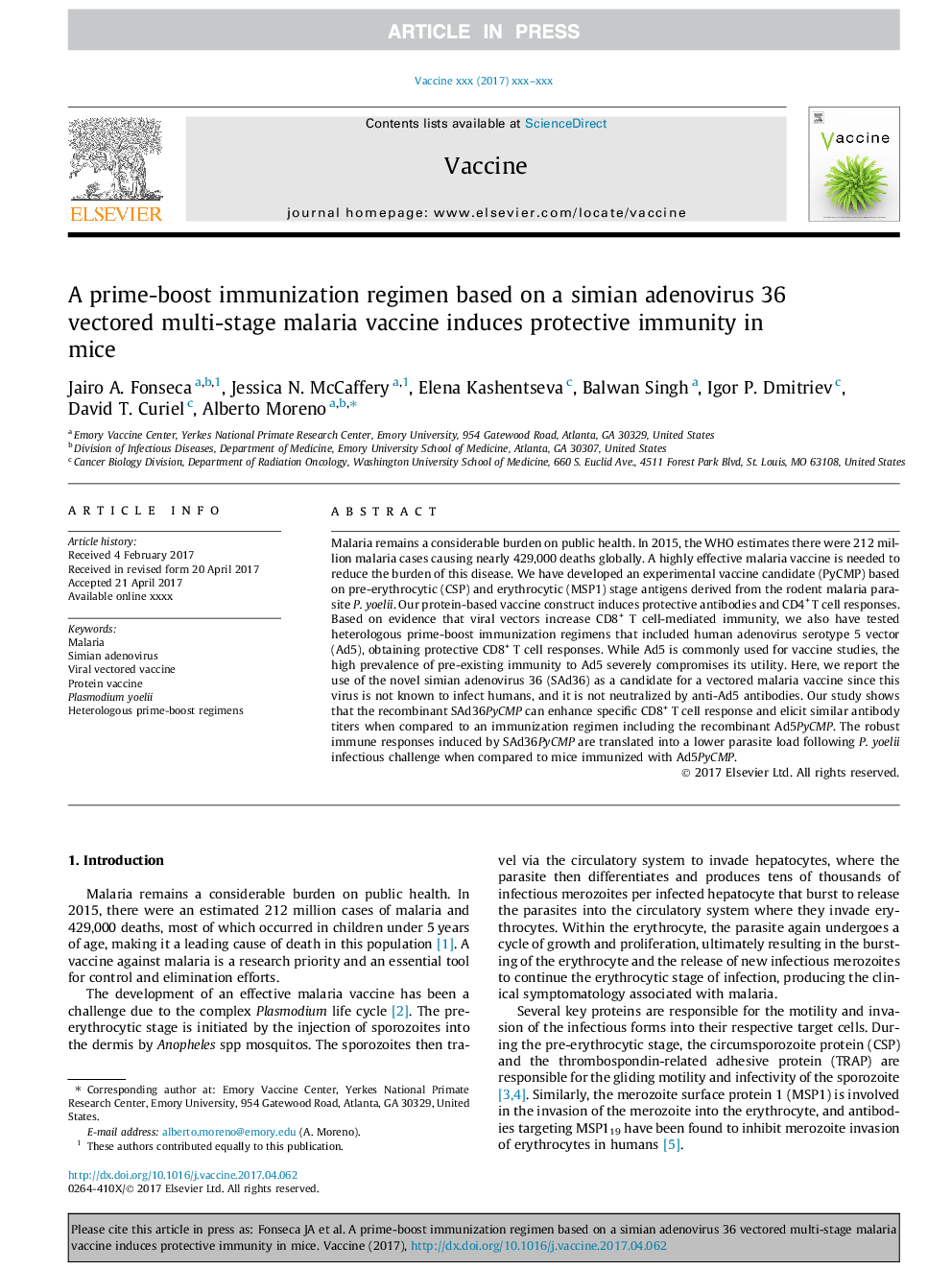| Article ID | Journal | Published Year | Pages | File Type |
|---|---|---|---|---|
| 5536513 | Vaccine | 2017 | 10 Pages |
Abstract
Malaria remains a considerable burden on public health. In 2015, the WHO estimates there were 212 million malaria cases causing nearly 429,000 deaths globally. A highly effective malaria vaccine is needed to reduce the burden of this disease. We have developed an experimental vaccine candidate (PyCMP) based on pre-erythrocytic (CSP) and erythrocytic (MSP1) stage antigens derived from the rodent malaria parasite P. yoelii. Our protein-based vaccine construct induces protective antibodies and CD4+ T cell responses. Based on evidence that viral vectors increase CD8+ T cell-mediated immunity, we also have tested heterologous prime-boost immunization regimens that included human adenovirus serotype 5 vector (Ad5), obtaining protective CD8+ T cell responses. While Ad5 is commonly used for vaccine studies, the high prevalence of pre-existing immunity to Ad5 severely compromises its utility. Here, we report the use of the novel simian adenovirus 36 (SAd36) as a candidate for a vectored malaria vaccine since this virus is not known to infect humans, and it is not neutralized by anti-Ad5 antibodies. Our study shows that the recombinant SAd36PyCMP can enhance specific CD8+ T cell response and elicit similar antibody titers when compared to an immunization regimen including the recombinant Ad5PyCMP. The robust immune responses induced by SAd36PyCMP are translated into a lower parasite load following P. yoelii infectious challenge when compared to mice immunized with Ad5PyCMP.
Related Topics
Life Sciences
Immunology and Microbiology
Immunology
Authors
Jairo A. Fonseca, Jessica N. McCaffery, Elena Kashentseva, Balwan Singh, Igor P. Dmitriev, David T. Curiel, Alberto Moreno,
